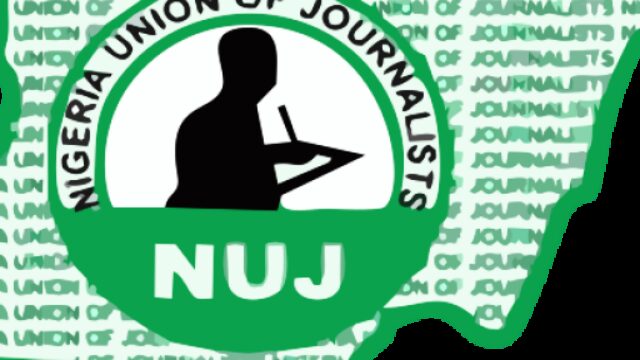President Bola Ahmed Tinubu has warned that Nigeria’s democracy and media credibility face growing threats from deepfake technology and AI-generated disinformation.
Tinubu stated this at the 70th Anniversary Gala, Award Night, and Book Presentation of the Nigeria Union of Journalists (NUJ), which took place over the weekend in Abuja.
The President, represented by the Minister of Information and National Orientation, Mohammed Idris, urged journalists to uphold ethical standards in an age of digital deception.
Tinubu stressed that responsible journalism is now more crucial than ever, as the line between fact and fabrication becomes increasingly blurred.
“The rise of generative AI and deepfakes poses a direct challenge to credible journalism. In this era, ethical journalism is not just important, it is essential,” he warned.
The warning comes amid global concerns over the use of artificial intelligence to manipulate images, videos, and audio.
While reaffirming Tinubu’s commitment to press freedom, Idris said the Federal Government is taking proactive steps by establishing a Category-2 Media and Information Literacy Institute in partnership with UNESCO.
The institute, to be located in Abuja, aims to equip journalists and the public with the tools to identify misinformation, verify facts, and build a culture of media responsibility.
“When operational, this Institute will serve as a transformative hub for building ethical journalism and informed citizenship in Nigeria,” he noted.
The President emphasised the pivotal role of the Nigerian media in fostering national unity, strengthening democracy, and shaping the country’s future, urging journalists to recommit to ethical journalism and nation-building.
The minister, who also served as Chief Host of the event, hailed the enduring relationship between President Tinubu and the media, describing him as a staunch ally of press freedom.
“President Bola Ahmed Tinubu is not just a friend of the media, but one whose democratic credentials were shaped in solidarity with Nigeria’s most courageous journalists. From the trenches of the June 12 struggle to the presidency, his affinity with the press remains unmatched.”
He urged media professionals to spotlight Nigeria’s democratic gains and progress stories to help consolidate the nation’s 26-year democratic journey and foster civic confidence in public institutions.
“The media must take the lead in telling the story of Nigeria’s democratic achievements, in governance reforms, infrastructure growth, civic engagement, and socio-economic development,” Idris said.
Idris also pledged the government’s willingness to partner with the NUJ on matters of journalists’ welfare, digitisation, gender inclusion, and institutional support.
Also speaking at the landmark event, elder statesman and veteran journalist, Chief Olusegun Osoba, called on the Federal Government and NUJ leadership to urgently tackle the menace of fake journalism in Nigeria.
“Mr. President, you have a challenge. Can you ensure that we now have an updated, verifiable database of genuine members of the Nigeria Union of Journalists? We must identify and weed out those parading themselves falsely as journalists,” he charged.
Osoba warned that the credibility and future of the profession are at risk if impostors continue to undermine professional standards, noting that NUJ remains the mother body, describing other affiliates of NUJ as clubs.
He stressed the importance of professionalism and integrity, especially as the country navigates the challenges of digital media.
Reflecting on his career, Osoba recounted his transition from analogue to digital journalism, urging practitioners to embrace innovation.
He said, “I was once an analogue journalist, but today I can proudly tell you that I am a digital reporter. Change is inevitable. Journalists must adapt to survive.”
He encouraged the media to stand firm against misinformation, uphold truth and public accountability, and honour the legacy of fallen heroes of the press.
Also speaking, NUJ President Comrade Alhassan Yahaya hailed the Union’s 70-year journey as a testament to professionalism, patriotism, and the power of journalism to shape national development.
He recalled how the union, founded on March 15, 1955, began as a platform to advocate for journalists’ welfare but evolved into a powerful institution at the forefront of national discourse and democracy.
He described the NUJ’s Platinum Jubilee as a historic moment of celebration, reflection, and renewed commitment to defending the role of journalism in Nigeria’s democratic journey.
“Our 70th anniversary is more than just a commemoration of our past,” he said. “It is a rallying cry for the future we envision, a future rooted in ethical journalism, responsible innovation, and unrelenting advocacy for press freedom.”
He noted that the NUJ’s growth is reflected in its widespread presence across Nigeria’s 37 state councils, the formation of affiliate bodies like NAWOJ, NGE, and SWAN, and its historic role in chronicling Nigeria’s civil war, coups, democratic transitions, and current reforms.
Amid ongoing insecurity in parts of the country, Yahaya charged journalists to maintain ethical standards, particularly in conflict reporting.
He said, “Our stories should aim to heal and unite, not divide. We must report with empathy, accuracy, and responsibility,” while reaffirming the union’s commitment to press freedom and constitutional democracy.
In the same vein, the Chairman of the NUJ @ 70 Organising Committee, Dr Abimbola Oyetunde, described the celebration as a landmark moment in the union’s history.
“I am deeply moved by the overwhelming success of this celebration. It reflects the enduring spirit of the NUJ and the vital role the media continues to play in Nigerian society,” she said.







